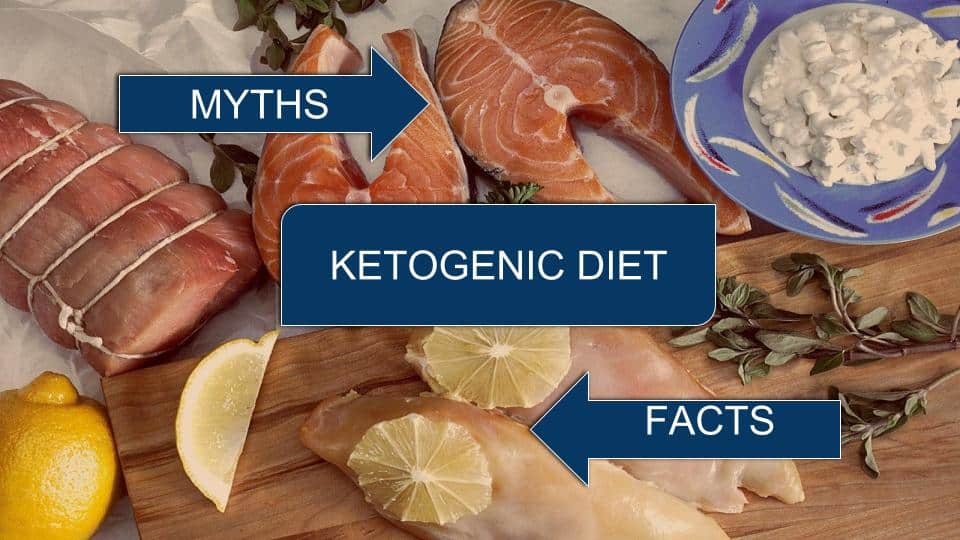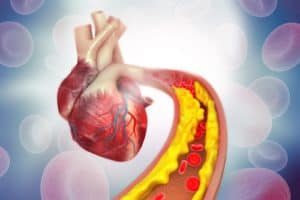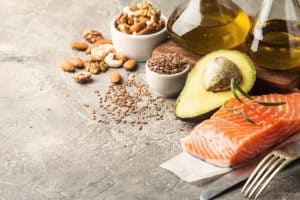There’s no stopping the Keto Diet, especially now that everybody is trying to stick to their New Year\’s Resolutions. You must have been hearing about its touted perks being quick weight loss, more energy, and stabilize blood sugar. Now, there are a few myths that are making the rounds right now.
Here are 13 Myths Of The Keto Diet that we will bust for you today!
Keep reading this and sort the difference between facts and myths yourself.
1. Uric Acid And Keto Diet
\”Will the Keto Diet lead to Increased Uric Acid or Damage The Kidneys?\” We probably hear this every day. Let us once and for all clear this out for you.
This one obviously sounds dangerous amongst other myths of the keto diet but no, the Keto Diet will not harm your Kidneys and won\’t increase your uric acid. Research suggests that the effects of a keto diet can alleviate the symptoms of gout.
The Keto Diet is a specialized diet that involves a reduced intake of carbohydrates and a moderate intake of proteins and a high proportion of fat consumption and the diet is considered to be an accelerated means of weight loss.
The reduction of carbohydrates puts the body into a metabolic state called ketosis. When this happens, your body becomes incredibly efficient at burning fat for energy. It also turns fat into ketones in the liver, which can supply energy for the brain.
-
Protein Intake
The lesser-known fact is that Uric Acid increases in the body when people take high amounts of proteins in their diet. The keto diet being moderate in proteins cannot even touch your levels.
The diet needs to match up with your body\’s protein requirements and not exceed it. So if you follow the diet in the right way then your Uric Acid won\’t spike and further your Kidneys will remain intact. So you actually don\’t have anything to worry about.
-
Managing Your Uric Acid With Keto
Keto Diet can also play a role in managing gout. Foods like liver, anchovies, trout, turkey, and bacon are high in substances called purines, which your body breaks down to form uric acid.
A ketogenic diet is typically high in purine-rich animal protein foods, which makes keto a counterintuitive choice for managing gout. Putting the body into a state of ketosis can impact the inflammation that contributes to diseases like gout.
Increased Uric acid can only be a result of you following the diet on your own. The symptoms can get worse and the diet that you were so excited about can turn into a mistake. Hence, Keto should be done in the right way, monitored under experts.
2. Building Muscle On A Keto Diet.
A widely held belief is that we need carbohydrates for successful workout recovery. The reasoning behind this is that carbohydrates help replenish glycogen. If that is the case, does that mean that Building Muscle on Keto Diet is impossible?
There are several misconceptions and myths of the keto diet that are doing rounds and confuse a lot of people and especially the ones who want to start with the diet. They throw myths around about carbs being necessary to build muscle and that the keto diet can conjure it.
The keto diet has become increasingly popular in recent years. It is a low carb, high-fat, and a moderate-protein diet that many people use to lose weight. It also links with various other health benefits too.
-
The Major Misconception
People assume that building muscle on a keto diet is close to impossible. That’s because low carb diets restrict carbs, which are known to promote the release of insulin. Insulin, an anabolic hormone that helps shuttle nutrients into cells, which helps create conditions that drive muscle growth.
With all of the conflicting information about this topic, it is easy to become discouraged and think that you can’t get the health benefits of keto without losing muscle mass, strength, and endurance. Fortunately, this isn’t the case at all.
The truth is that, with a deeper understanding of how the body works and what it needs when carbohydrates are being restricted it is possible to experience the health benefits of keto, increase muscle mass, and improve exercise performance at the same time. No carbs required.
-
So How Does It Work?
You need to have a positive nitrogen balance in order to gain muscle. Nitrogen balance compares the amount of nitrogen coming into the body to the amount being lost. If you\’re consuming more than you\’re losing, you\’re in positive nitrogen balance – gaining muscle. If you\’re losing more than you\’re consuming, you\’re in negative nitrogen balance – losing muscle.
No carbs or fats are used in this system – the regeneration of ATP comes solely from stored creatine phosphate, which allows cells to replenish energy more quickly than any other energy system. This is why the phosphagen system is the predominant energy system used for all-out exercise lasting up to around 10 seconds.
However, there is a limited amount of stored creatine phosphate and ATP in skeletal muscles, which is why fatigue occurs rapidly at higher intensities of activity Keto vs Traditional. So provided your diet is customized according to the requirements of your body, building muscle is no challenge on the keto diet.
3. Keto Flu And The Keto Diet.
The so-called keto flu is a group of symptoms that may appear two to seven days after starting a ketogenic diet. The symptoms may not even be unique to the ketogenic diet. People have similar symptoms after they cut back on processed foods, or decide to follow an elimination or an anti-inflammatory diet.
-
Symptoms Of Keto Flu
- Fatigue
- Headache
- Irritability
- Difficulty focusing (“brain fog”)
- Lack of motivation
- Dizziness
- Sugar cravings
- Nausea
- Muscle cramps
-
What causes Keto Flu?
The keto flu occurs as your body transitions from burning sugar to burning fat for most of its energy needs. Switching from a high-carb diet to a very-low-carb diet lowers insulin levels in your body, one of the primary goals of a ketogenic diet.
When insulin levels are very low, your liver begins converting fat into ketones, which most of your cells can use in place of glucose. When your body is mainly using ketones and fat for energy, you’re in a state of ketosis.
This change is responsible for some of the rapid weight loss that happens in the early stages of a keto diet. However, losing a lot of water and sodium is responsible for many of the unpleasant symptoms of keto flu.
It’s well known that response to the keto transition is very individual. Some people may feel fine or slightly tired for a day or two after starting keto. However, the keto flu doesn’t have to be unbearable for anyone if the proper steps are taken to remedy it.
-
How To Fix Keto Flu
Symptoms of the keto flu usually disappear by themselves within a few days to weeks, as the body adapts. But rather than suffering needlessly during this time, why not address the cause and start feeling better right now? The first step is by far the most important, and it’s often all that’s needed.
Increase Your Salt And Water Intake
Since the loss of salt and water is responsible for most keto flu issues, increasing your intake of both can help reduce your symptoms significantly and often eliminate them altogether. During the first few weeks of your keto lifestyle, whenever you develop a headache, lethargy, nausea, dizziness, or other symptoms, drink a glass of water with half a teaspoon of salt stirred into it.
This simple action may alleviate your keto flu symptoms within 15 to 30 minutes. Feel free to do this twice a day or more, if needed.
More Fat = Fewer Symptoms
Increasing salt and fluid intake usually resolves most of the keto flu side effects. However, if you continue feeling poorly after following those recommendations, try eating more fat. Due to decades of misinformation about fat being unhealthy, fat-phobia is common among people who are new to low-carb eating.
But if you sharply cut back on carbs without upping your fat intake, your body will think it is starving. You’ll feel tired, hungry, and miserable. A well-balanced keto diet includes enough fat to ensure you’re not hungry after a meal, can go for several hours without eating, and have ample energy.
Slower Transition
Has adding more water, salt, and fat not helped very much? Are you still feeling achy, tired, and off? We recommend you try to endure keto eating for a few more days until the symptoms pass. Research suggests that a very-low-carb diet is best for weight loss and metabolic issues like type 2 diabetes.
This is one silly misconception amongst all other myths of the keto diet. Keto Flu can only hit if you are following it on your own. The symptoms can get worse and the diet that you were so excited about can turn into a mistake. Hence, Keto should be done in the right way, monitored under experts.
4. Higher Levels Of Ketones Cause Greater Fat Loss.
When people are struggling to lose weight with keto, the advice of “increase fats to get ketone levels up” is thought of. But this is actually a myth. Increased ketones in your urine sample don’t necessarily indicate a faster weight loss. In fact, taking a ton of exogenous ketones to get your ketone levels up could be counterintuitive when trying to achieve and promote a fat loss in the body.
5. Green Tea Makes You Lose Weight
The consumption of green tea increased in about 2012 due to many marketing gimmicks! The EGCG in Green Tea is incomparable to the amount of EGCG that was used in researches, which actually resulted in weight loss. EGCG, a potent antioxidant thought of by some as a sort of kryptonite to body fat. Supporters say it reduces fat gain and enhances fat-burning. But the amount found in a typical cup of green tea is not enough to have much effect.
That was made clear in a report published in The Cochrane Database of Systematic Reviews. The report analyzed a dozen randomized controlled trials, each lasting at least three months, and found that regularly drinking green tea had no meaningful effect on weight loss in overweight adults.
So, if you’re having 1-2 cups of green tea per day especially on your keto diet, you might wanna think again and you might wanna replace it with bulletproof coffee. Chuck this one out just like other myths of the keto diet.
6. If It Fits Your Macros (IIFYM), The Quality Of Food You Eat Is Not So Important.
What nutrition you get is important but from where you are getting is important too. Just because they fit in your macros does not necessarily imply it\’s good for you. So be conscious about where you are getting that fat from.
7. Following A Keto Diet Will Shoot Up Your Cholesterol Due To The Consumption Of More Fats.
A common misconception is that the keto diet increases “bad” cholesterol levels and clogs your arteries because it is so high in fat. However, much of the recent research shines a light on how high-fat, low-carb diets can optimize your cholesterol levels and improve your heart health.
It was concluded that the Keto Diet can confer cardiovascular benefits because they improve levels of HDL in the body. If you need to increase levels of heart-healthy HDL cholesterol, a keto diet can be an effective tool.
The keto diet can help reduce the number of LDL and VLDL particles and increase the size of LDL particles in overweight people. These all have positive effects on cardiovascular fitness.
So, if you have high levels of LDL particles and VLDL particles, consider adopting a carbohydrate-restricted diet. To optimize your LDL cholesterol levels, consider adopting a diet high in healthy monounsaturated fats.
So, does eating a high amount of fat actually mean unhealthy meals that can spike up your cholesterol? No. Low-carb keto diets evidently increase the HDL (high-density lipid) level that is the \’good cholesterol\’.
An increased HDL actually REDUCES the chances of heart disease as it wipes out other bad cholesterol from the bloodstream. So with keto, you are flushing out the bad cholesterol and keeping the good one. So, don\’t believe this one, it is just one amongst other myths of the keto diet.
8. Constipation And Keto
You must have heard a myth that the keto diet can cause you to have Constipation due to the absence of carbs in the body. Well, to begin with, it is not true at all. The Keto Diet is a low-carb diet and not a no-carb diet. So there won\’t be zero carbs in the body hence no constipation.
It doesn’t happen if you follow the diet in the right manner! If one takes the vegetables in proper amounts, constipation does not occur. Therefore, we make sure to incorporate plenty of green leafy vegetables and fibrous vegetables into the diet to prevent constipation.
Even if you end up not matching up with your macros and constipation does happen then for instant relief, you can use psyllium husk in a glass of water and you\’re good to go!
9. Nutrient Deficiencies And Keto
We all go on a diet once in a while to lose weight that we might have gained over time. What may surprise you is that chronic vitamin and micronutrient deficiencies might just be the reason we’re carrying that extra weight.
Nutritional deficiencies don’t go away unless the new “diet” contains a wide array of nutrient-dense foods. Which is why Keto Diet can help you out as the diet is dense in Nutrients. Our nutritionists curate the diet based upon your Macronutrient and Micronutrient Requirements.
All the nutrients are properly calculated and executed in the diet in a proper manner to meet those requirements. Moreover, the nutritionist incorporates plenty of vegetables and other food sources such as paneer, chicken, eggs, and healthy fats.
The Keto Diet is as nutritious more than any other diet protocol so whoever gave you this one as one of the myths of the keto diet then you have absolutely nothing to worry about!
10. Period Cycles And Keto
Diet changes can have a big effect on the menstrual cycle. And eating enough calories regularly can always cause you to regulate your periods. So if you are matching up with your Caloric Requirements you have absolutely nothing to worry about!
For a healthy individual, it does not affect the periods, whereas it will make the periods more regular. Especially for people with PCOS, it helps them to get their periods at regular intervals without having to depend upon the medicines.
11. Brain Function And Keto
You may have heard that your brain needs 130 grams of carbs per day to function properly. This is one of the most common myths about low-carb diets.
Although a zero-carb diet isn\’t recommended because it eliminates many healthy foods, you can eat much less than 130 grams per day and maintain good brain function. Keto is not a no-carb diet, it is a low carb diet.
The Keto Diet provides you with adequate carbs in your diet for the proper functioning of your brains. On average our brain requires only 20% energy from the glucose to function efficiently. The remaining 80% of energy is derived from the ketones.
12. Pregnancy On Keto
It is completely safe for women to be eating a ketogenic diet in pregnancy. Women in ancient times were almost certainly ketotic during pregnancy. We recommend that women should start the diet two to three months before trying to conceive so that the mom is fat-adapted before entering pregnancy.
This diet is all called a banting diet in Africa, and it helps to conceive in a better way. If you have been trying to fall pregnant for a year with no success, it is worth giving the low-carb high-fat diet some consideration.
13. Ketoacidosis Vs Ketosis
One amongst other myths of the keto diet is the fact that Ketoacidosis and Ketosis are confused with each other.
-
What Is Ketoacidosis?
Ketoacidosis is a complication of type 2 diabetes. It happens when your blood sugar is very high and acidic substances called ketones build up to dangerous levels in your body.
Ketoacidosis shouldn’t be confused with ketosis, which is harmless. Ketosis occurs as a result of a low carbohydrate diet, known as a ketogenic diet. Ketoacidosis only happens when you don’t have enough insulin in your body to process high levels of glucose in the blood.
It’s less common in people with type 2 diabetes because insulin levels don’t usually drop so low; however, it can occur. DKA may be the first sign of type 1 diabetes, as people with this disease can’t make their own insulin.
-
Ketoacidosis And Ketosis
Nutritional ketosis occurs when the body uses fat instead of glucose as fuel. The liver breaks down this fat into chemicals called ketones and releases them into the bloodstream. The body is then able to use the ketones as an energy source.
The ketogenic diet aims to induce nutritional ketosis. People do this by eating foods that are high in fat but very low in carbohydrates. Adopting this diet has become a popular way to burn fat and lose weight.
In contrast, ketoacidosis occurs when the body thinks that it is starving and starts breaking down fats and proteins too quickly. It is a potential complication of type 1 diabetes.
If a person does not have enough insulin, the body cannot move glucose from the blood into cells, where it is necessary for energy. As a result, dangerous levels of both glucose and ketones can accumulate in the blood. Doctors refer to this condition as ketoacidosis.
Being educated and well aware is the only key to success. Next time someone tries to give you any of these above, bust these myths of the keto diet for them. This is as easy as it gets!
So what\’s stopping you from starting your own keto journey? Get yourself started today and Stay tuned for more such keto weight loss journeys, health content, and recipes! Also, don\’t forget to follow us on Instagram for the daily dose of the Keto Lifestyle!






























